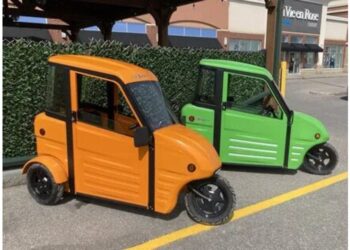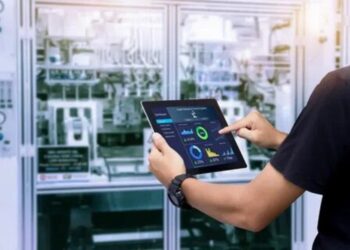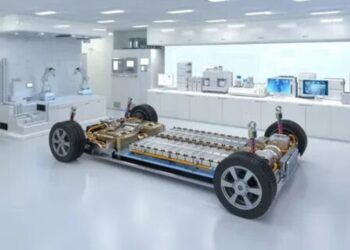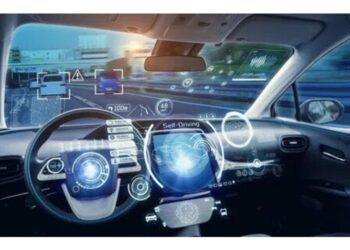Anticipated at a market value of US$ 2.67 billion in 2024, the North American drone battery market is poised for substantial growth. Projections suggest an impressive CAGR of 8.9%, propelling the market to reach US$ 6.26 billion by the end of 2034.
Drone batteries, tailored for Unmanned Aerial Vehicles (UAVs), are rechargeable energy storage devices that play a pivotal role in powering drones. Predominantly utilizing lithium-ion (Li-ion) technology, these batteries offer high energy density, a lightweight profile, and sustained power supply, influencing the overall performance of UAVs.
Variations in voltage and capacity contribute to diverse drone battery options, influencing power and flight duration. Batteries with 5,001 to 10,000 mAh capacity are expected to witness a remarkable CAGR of 9.2%, reaching a market value of US$ 2.41 billion by 2034. Additionally, drone batteries with a capacity exceeding 10,000 mAh are predicted to see a robust CAGR of 9.4% through 2034.
Sales and Forecast Highlights:
- Drone Battery Sales in North America (2024E): US$ 2.67 Billion
- Forecasted Sales (2034F): US$ 6.26 Billion
- Demand Growth (2024 to 2034): 8.9% CAGR
- Mini Quad Drone Battery Sales (2024E): US$ 91.3 Million
- Micro Quad Drone Battery Demand Growth (2024 to 2034): 7.5% CAGR
- Key Market Influencers:
“Smart Battery Management System (BMS) Integration Advancing Performance of Drone Batteries” The integration of Smart Battery Management Systems (BMS) emerges as a transformative force in the North American market. Elevating the drone battery landscape, smart BMS offers advanced monitoring, optimization, and safety features. Real-time monitoring of parameters like state of charge (SOC), state of health (SOH), and state of function (SOF) enhances reliability and efficiency. Safety protocols, temperature, voltage, and current monitoring contribute to the overall safety of drone operations.
“Advancements in Drone Battery Technologies Leading to Enhanced Energy Density and Long Battery Life” Ongoing developments in drone battery technology focus on increasing energy density and reducing charging times. Lithium-based batteries, including lithium-polymer (Li-Po) and lithium-sulfur (Li-S), are undergoing refinement for superior energy density. Fast-charging technologies, such as high-capacity charging and rapid charging protocols, aim to minimize charging durations, enhancing operational efficiency.
Country-wise Analysis:
“United States – A Key Market for Drone Power Solutions Providers”
- Market Value (2024E): US$ 2.47 Billion
- Growth Rate (2024 to 2034): 9% CAGR
- Projected Value (2034F): US$ 5.85 Billion
- The United States leads in drone adoption across industries like aerial photography, surveying, agriculture, and infrastructure inspection. Increasing applications in public safety and security further drive demand for high-performance drone batteries with enhanced endurance.
“Canada – High Demand for Advanced Drone Battery Technologies”
- Market Value (2024E): US$ 198.9 Million
- Growth Rate (2024 to 2034): 7.9% CAGR
- Projected Value (2034F): US$ 425.45 Million
- Canada’s diverse landscape and resource industries fuel the use of drones in mining, forestry, and environmental monitoring. Demand for robust drone batteries capable of extended operational durations is driven by the challenging environmental conditions in these sectors.
Category-wise Analysis:
“Diverse Application of Drones Boosting Demand for High-Performance Commercial/Industrial Drone Batteries”
- Commercial/Industrial Drone Batteries (2024E): US$ 2.34 Billion
- Growth Rate (2024 to 2034): 9.2% CAGR
- Projected Value (2034F): US$ 5.64 Billion
- Drones find diverse applications in cinematography, surveying, mapping, and inspections across North American industries. This diversity necessitates high-capacity and reliable drone batteries for sustained power during extended operations.
Competitive Landscape:
Key players in North America focus on research and development, innovating batteries with high energy density, enhanced safety features, and prolonged lifespans. Strategic partnerships and collaborations with drone manufacturers and research institutions contribute to market growth.
Segmentation of Drone Batteries Study in North America:
By Drone Type:
- Mini Quad
- Micro Quad
- Commercial/Industrial
- Others
By Battery Chemistry:
- NiCad
- NiMH
- LiPo
- Others
By Battery Capacity:
- Below 3,000 mAh
- 3,000 to 5,000 mAh
- 5,001 mAh to 10,000 mAh
- Above 10,000 mAh
By Country:
- United States
- Canada













